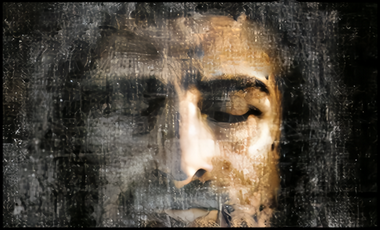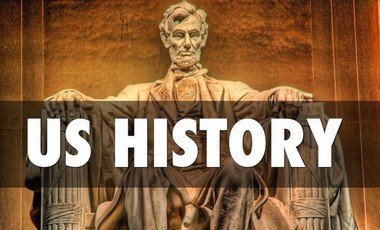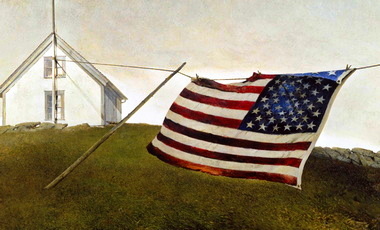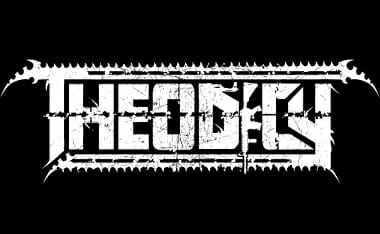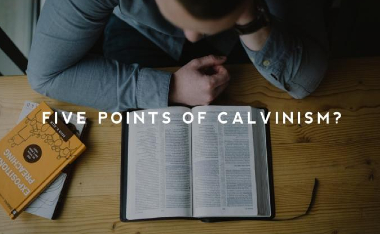The arrival of David in the court of Saul (16:14–23)
As noted above, the two halves (vv.1–13, 14–23) of chapter 16 are linked together in various ways and therefore constitute a literary unit. One link is the position of David’s name. “In each of its first appearances it is the object of a verb: in v.13 the spirit of YHWH ‘seizes’ (ṣālaḥ) David, and in v.19 Saul asks Jesse to ‘send’ (šālaḥ) David to him.… The two verbs are very similar in sound, being distinguished only as the two sibilants s and š are distinguished” (Walters, “The Light and the Dark,” pp. 572–73).
In addition, however, the hinge of the chapter underscores, as described in the title of an excellent article by David M. Howard, Jr., “The Transfer of Power From Saul to David in 1 Sam 16:13–14” (JETS 32, 4 [1989]: 473–83 [PDF VIEWABLE HERE]). “The movements of the figures here—YHWH’s Spirit, Samuel, the evil spirit—in relationship to each other effectively tell the story of the transfer of political power and spiritual power from Saul to David” (ibid., p. 477).
14–18 The relationships of four movements in vv.13–14 are clarified in the following chart, which exhibits an ABB’A’ pattern:

Howard summarizes: “When YHWH’s Spirit came upon David his anointer left, leaving him in good hands. When YHWH’s Spirit left Saul an evil spirit came upon him, leaving him in dire straits” (ibid., p. 481).
The Spirit’s coming on David and the Spirit’s leaving Saul were two climactic events that occurred in close sequence to each other (cf. esp. 18:12: “The Lord was with David but had left Saul”). Just as the accession of the Spirit by David was an expected accompaniment of his anointing as Israel’s next ruler (v.13), so the departure of the Spirit from Saul (v.14) should be understood as the negation of effective rule on his part from that time on. No longer having access to Samuel’s counsel, Saul eventually was forced to resort to the desperate expedient of consulting a medium because God had “turned away” from him (28:15; the Heb. verb is the same as the one rendered “departed” in v.14).
The “evil spirit” (v.14), the divinely sent scourge that “tormented” (lit., “terrified,” “terrorized”) Saul, returned again and again (18:10; 19:9). Just as God had sent an evil spirit to perform his will during the days of Abimelech (Judg 9:23), so also he sent an evil spirit on Saul—“both of whom proved to be unworthy candidates for the office” of king in Israel (Howard, “The Transfer of Power,” p. 482). In both instances it was sent in response to their sin, which in Saul’s case was particularly flagrant (13:13–14; 15:22–24). Although the “evil” spirit may have been a demon that embodied both moral and spiritual wickedness, it may rather have been an “injurious” (so NIV mg.) spirit that “boded ill for Saul, one that produced harmful results for him” (Howard, “The Transfer of Power,” p. 482 n. 36). It was thus doubtless responsible for the mental and psychological problems that plagued Saul for the rest of his life.
That God used alien spirits to serve him is taken for granted in the OT (cf. esp. 2 Sam 24:1 with 1 Chronicles 21:1). On occasion God’s people “were not very concerned with determining secondary causes and properly attributing them to the exact cause. Under the divine providence everything ultimately was attributed to him; why not say he did it in the first place?” (Walter C. Kaiser, Jr., Hard Sayings of the Old Testament [Downers Grove: InterVarsity, 1988], p. 131; cf. also Gleason L. Archer, Encyclopedia of Bible Difficulties [Grand Rapids: Zondervan, 1982], p. 180: “Saul’s evil bent was by the permission and plan of God. We must realize that in the last analysis all penal consequences come from God, as the Author of the moral law and the one who always does what is right [Gen. 18:25]”; cf. Fredrik Lindstrom, God and the Origin of Evil [Lund: Gleerup, 1983]).
As French marechal (“blacksmith”) developed into marshal, and as chambellan (“bedchamber attendant”) developed into chamberlain, so also ʿeḇeḏ (“servant”) came to mean “attendant,” “official” in royal circles in Israel, beginning during the days of Saul. The title was conferred on high officials and is found inscribed on their seals. It was also employed side by side with the use of the term as a conventional way of referring to oneself while addressing a superior (cf. conveniently Talmon, p. 64 and nn. 34–36). Thus Saul’s “attendants,” aware that their king was being tormented by an evil spirit (v.15), referred to themselves as his “servants” (same Heb. word) who were ready and eager to help (v.16; cf. v.17; 17:32, 34, 36; 18:5 [“officers”], 22, 24; 19:1; 28:7).
Perhaps sensing that “music hath charms to soothe the savage breast,” Saul’s attendants offered to look for someone to play the “harp” (kinnôr; cf. comment on 10:5) to make their master “feel better” (v.16). Pictorial representations of the asymmetrical harp or lyre ranging from the twelfth to seventh centuries b.c. can help us visualize what David’s harp looked like (cf. Biblical Archaeology Review 8, 1 [1982]: 22, 30, and esp. 34). Walters (“The Light and the Dark,” p. 582) points out that of the fifteen OT occurrences of niggēn (“play [an instrument]”), seven appear in this section of 1 Samuel (vv.16 [bis], 17, 18, 23; 18:10; 19:9) and thus serve at the outset to highlight the reputation of David as “Israel’s singer of songs” (2 Sam 23:1).
Saul agreed with his attendants’ counsel (v.17), and one of his “servants” (lit., “young men,” a different Heb. word than that rendered “attendants” in v.15 and “servants” in v.16) suggested that a certain son of Jesse would meet Saul’s needs admirably (v.18). In the course of doing so, the servant gave—in a series of two-worded Hebrew phrases—as fine a portrayal of David as one could wish. Understandably he began with a characterization of him as a musician and then continued by describing him as a “brave man” (the same Heb. phrase is used of Saul’s father, Kish, and is translated “man of standing” in 9:1), a “warrior” (translated “fighting man” of Goliath in 17:33 and “experienced fighter” of David in 2 Sam 17:8), a discerning and articulate speaker, and a handsome man as well. The servant’s final descriptive phrase—set off from what precedes by a major disjunctive accent in the MT (Masoretic text)—reminds us that just as the Lord was with Samuel (3:19), so also he was with David. This latter attribute becomes yet another Leitmotif for David (17:37; 18:12, 14, 28; 2 Sam 5:10; so Walters, “The Light and the Dark,” pp. 570–71; McCarter, “The Apology of David,” pp. 499, 503–4). Although unwittingly, Saul’s servant has just introduced us to Israel’s next king.
A modern assessment of David’s character and career sees him as “giant-slayer, shepherd, musician, manipulator of men, outlaw, disguised madman, loyal friend and subject, lover, warrior, dancer and merrymaker, father, brother, son, master, servant, religious enthusiast, and king” and then asks, “What are we to make of this enormous portrait? Where do we begin?” (Kenneth R.R. Gros Louis, “King David of Israel,” in Literary Interpretations of Biblical Narratives edd. Kenneth R.R. Gros Louis and James S. Ackerman [Nashville: Abingdon, 1982], 2:205). The rest of our commentary can only tentatively analyze these and other aspects of the personality and deeds of this most complex of all Israelite kings. For now, a gentle irony: Although Saul’s servant agreed with the positive contemporary consensus that kings and courtiers should be “fine-looking” (v.18), the same Hebrew word is preceded by a negative particle in its description of great David’s greater Son as one who had “no beauty” (Isa 53:2).
19–23 Again Saul, influenced by a servant’s suggestion, sent for the man described: Jesse’s son—here, for only the second time so far, identified by the name David (v.19). Saul’s reference to David as being “with the sheep” thus identifies him as a shepherd and uses “language which refers allusively to him as a kingly figure” (Walters, “The Light and the Dark,” p. 575). Like Jesse earlier (cf. v.11 and comment), Saul unwittingly characterizes David as Israel’s next king.
It is often stated that numerous inconsistencies, especially in matters of detail, exist in the early stories of David and Saul (for a typical list, see Emmanuel Tov, “The Composition of 1 Samuel 16–18 in the Light of the Septuagint Version,” in Empirical Models for Biblical Criticism ed. Jeffrey H. Tigay [Philadelphia: University of Pennsylvania, 1985], pp. 121–22). The appropriate response to such alleged discrepancies is not, however, to seek refuge in the fact that in chapters 16–18 “the Masoretic Text has 80 percent more verses than does the LXX” (ibid., p. 99) and thus to attribute the differences to an attempt by the standardizers of the present Hebrew text to include variant readings whether or not they could be harmonized. Nor should one assume the prior existence of two or more different narratives of how David rose to power, along the lines of the now discredited documentary hypothesis (for a lively survey of this approach, cf. North, “David’s Rise,” pp. 524–44). Much to be preferred is the method of examining each so-called discrepancy on its own merits in an attempt to determine whether it is more apparent than real.
A case in point: If Saul recognizes David as Jesse’s son in v.19, why does he later ask him whose son he is (17:58)? In the light of the differing contexts in the two chapters, a possible solution comes to mind. In chapter 16 Saul’s initial interest in David was as a harpist, while in chapter 17 he is interested in him primarily as a warrior (according to his customary policy, 14:52). Saul’s question in 17:58, in any event, is only a leadoff question; his conversation with David continued far beyond the mere request for his father’s name (18:1). He probably wanted to know, among other things, “whether there were any more at home like him” (Archer, Encyclopedia of Bible Difficulties, p. 175). It is of course not beyond the realm of possibility that Saul simply forgot the name of David’s father during the indeterminate period between chapters 16 and 17.
A firm believer in the truth later expressed in Proverbs 18:16—“a gift opens the way for the giver/and ushers him into the presence of the great”—Jesse sent David to take bread, wine, and a young goat (staple items; cf. 10:3) to Saul (v.20). Obviously impressing Saul (v.21), David “entered his service” (wayyaʿamōḏ lep̱ānāyw lit., “stood before him,” a common idiom in the ancient Near East [cf. v.22, “remain in my service”]; the Akkadian semantic equivalent is uzuzzu pani) as an armor-bearer. Although skilled men can expect to be pressed into service by kings (Prov 22:29), Saul also “liked” David personally (the same Heb. verb describes Jonathan’s relationship to David and is translated “loved”; cf. 18:1, 3; 20:17). At the same time the narrator may well be playing on the ambiguity of the verb ʾāhēḇ (“love”) in these accounts, since it can also have political overtones in covenant/treaty relationships (so J.A. Thompson, “The Significance of the Verb Love in the David-Jonathan Narratives in 1 Samuel,” VetTest 24, 3 [1974]: 335 [PDF VIEWABLE HERE]).
Obviously delighted with David, Saul engages him as one of his servants (v.22). Sandwiched between the two occurrences of the noun rûaḥ (“spirit”) in v.23 is the verb rāwaḥ (“relief would come”). The noun and the verb both come from the same root (rwḥ) and thus constitute an elegant wordplay, stressing that David’s skill as a harpist brings soothing “relief” that drives the evil “spirit” from the disturbed king (cf. similarly Walters, “The Light and the Dark,” p. 578).
The chapter ends with a gifted young man, Israel’s future king, coming to serve a rejected and dejected ruler who is totally unaware of the implications of his welcoming David into his court. Not just “a handsome yokel with a rustic lyre,” Jesse’s son is the anointed king (ibid., p. 581).
Ronald F. Youngblood, “1, 2 Samuel,” in The Expositor’s Bible Commentary: Deuteronomy, Joshua, Judges, Ruth, 1 & 2 Samuel, ed. Frank E. Gaebelein, vol. 3 (Grand Rapids, MI: Zondervan Publishing House, 1992), 687–691.
